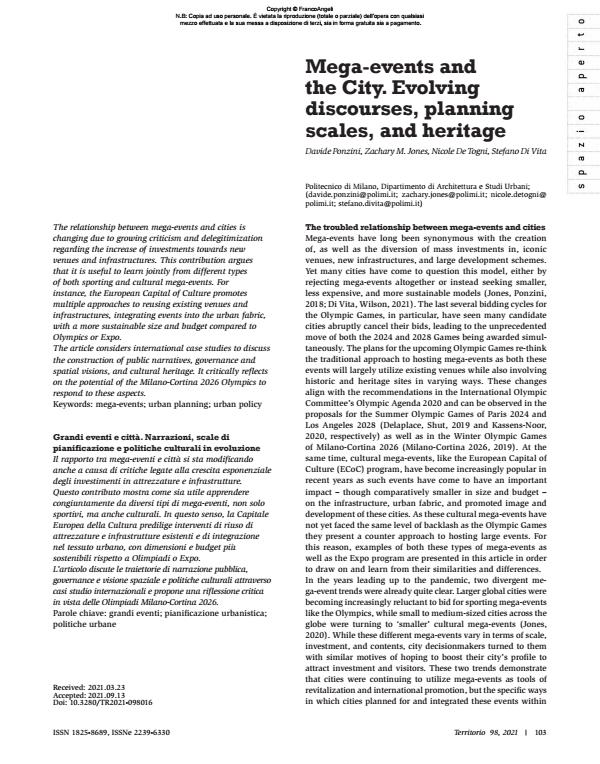Mega-events and the City. Evolving discourses, planning scales, and heritage
Journal title TERRITORIO
Author/s Davide Ponzini, Zachary M. Jones, Nicole De Togni, Stefano Di Vita
Publishing Year 2022 Issue 2021/98
Language English Pages 7 P. 103-109 File size 143 KB
DOI 10.3280/TR2021-098016
DOI is like a bar code for intellectual property: to have more infomation
click here
Below, you can see the article first page
If you want to buy this article in PDF format, you can do it, following the instructions to buy download credits

FrancoAngeli is member of Publishers International Linking Association, Inc (PILA), a not-for-profit association which run the CrossRef service enabling links to and from online scholarly content.
The relationship between mega-events and cities is changing due to growing criticism and delegitimization regarding the increase of investments towards new venues and infrastructures. This contribution argues that it is useful to learn jointly from different types of both sporting and cultural mega-events. For instance, the European Capital of Culture promotes multiple approaches to reusing existing venues and infrastructures, integrating events into the urban fabric, with a more sustainable size and budget compared to Olympics or Expo. The article considers international case studies to discuss the construction of public narratives, governance and spatial visions, and cultural heritage. It critically reflects on the potential of the Milano-Cortina 2026 Olympics to respond to these aspects.
Keywords: mega-events; urban planning; urban policy
Davide Ponzini, Zachary M. Jones, Nicole De Togni, Stefano Di Vita, Mega-events and the City. Evolving discourses, planning scales, and heritage in "TERRITORIO" 98/2021, pp 103-109, DOI: 10.3280/TR2021-098016